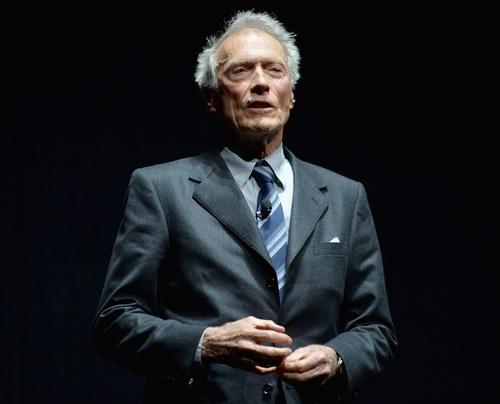
"I was against going into the war in Iraq since I figured we would probably trip over ourselves in some way," Clint Eastwood revealed after screening his new film American Sniper on Saturday at the Academy of Motion Picture Artists and Sciences’ Goldwyn Theater in Beverly Hills.
"I had a big question when we went into Afghanistan," he also said, explaining, "Did anybody ever study the history of Afghanistan, not only with the British, but the Russians? There was a Russian general namedVivikov, who was the commander for 10 years there, and I thought, ‘Did anybody ever…?’ So I called a friend of mine who was over there for many years and knew this general. I said, ‘Did anybody from our government ever go and research it like you would a movie? You know, can we film here?’ And they said, ‘No, they never did.’ Vivikov is deceased now, but at the time I thought, ‘Wouldn’t a logical person go out and do a little research and say, ‘How would you do this, Mr. Vivikov? What did you do wrong? And what are we doing wrong? Give us at least a hint.’
Sniper, which Warners will open in limited release Christmas day, profiles Chris Kyle (played by Bradley Cooper), a Navy SEAL who was the most effective American sniper during the Iraq War. It is already provoking considerable debate, with some asserting that the movie — and particularly the shocking way it ends — serves as a cautionary tale about the perils of war. But others have suggested that it is the politically conservative Eastwood 's attempt to glorify and defend the Iraq War that was initiated by fellow Republican George W. Bush.
The 84-year-old filmmaker — who could become the oldest person, by five years, ever to land a best director Oscar nom — is usually a man of few words, but he took the issue head-on, embarking on a passionate soliloquy, of sorts as he spoke about his own experience of war during a Q&A I conducted with him in front of hundreds of Oscar voters.
"Sometimes the arrogance of wanting just to burst into war and not really researching the value of it and the tragic ending its gonna be for so many people …" Eastwood trailed off, before continuing, "Sometimes it’s inevitable. I grew up during World War II. I was 11 years old when Pearl Harbor was bombed. I was, at that age, very fascinated by everything, and everything was very patriotic — but that was going to be the war to end all wars! Well, [a few] years later, I’m standing at the draft board, with the Korean War going, and I’m standing there naked, and people are asking me to cough. I’m thinking, ‘What the hell?' (Ed. note: Eastwood was drafted into the Army in the early 1950s). I thought that was the war that was going to end all wars.’ And then, pretty soon, we’re in Vietnam. And so, at some point, you start saying ‘It’s fun to talk about [war]. It’s fun to talk about the emotions of it, getting in. And in Letters From Iwo Jima, it was fun to explore how it felt from the other side as well. But, by the same token, there are other stories that maybe [society should] tell that aren’t as tragic about life."
During the Q&A, Eastwood also spoke about how he has treated violence in his films. While Eastwood famously carried a gun and killed people in many of his early movies, he also has featured violence in his films to send an anti-violence message. Part of what made Unforgiven, his 1992 film that won the best picture Oscar, so powerful was that the character he plays in that movie says of killing a man: “It’s a hell of a thing, killing a man. Take away all he’s got and all he’s ever gonna have.” When a much younger man says, “Yeah, well, I guess they had it coming,” he replies, “We all got it coming, kid.”
Said the four-time Oscar winner, “Contrary to public opinion, I abhor violence.” LINK


